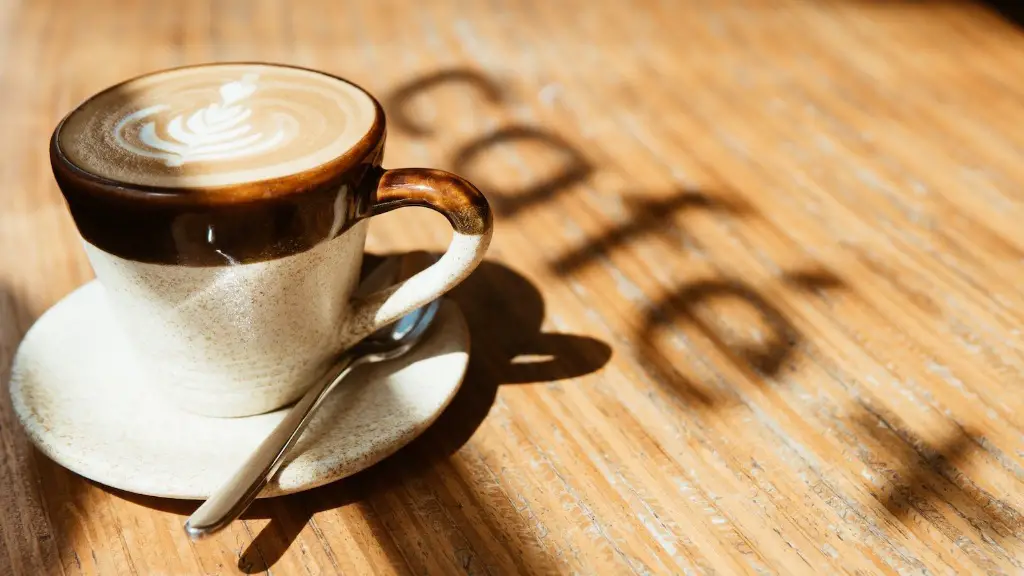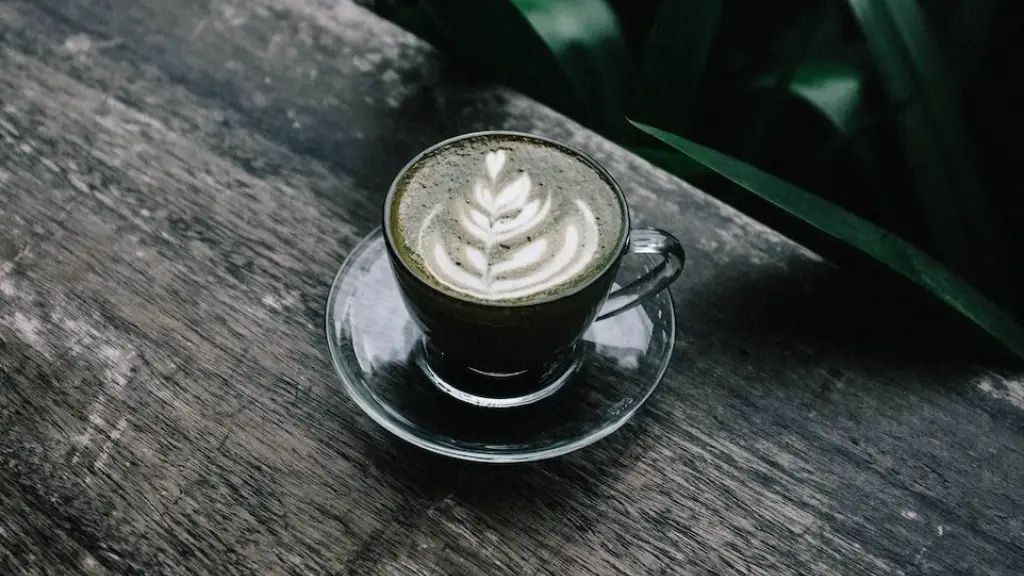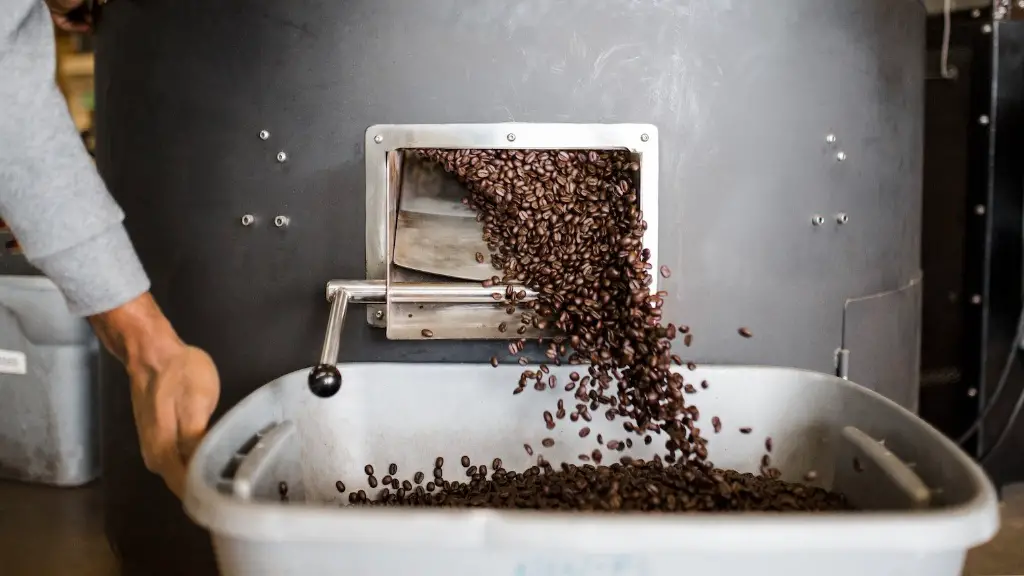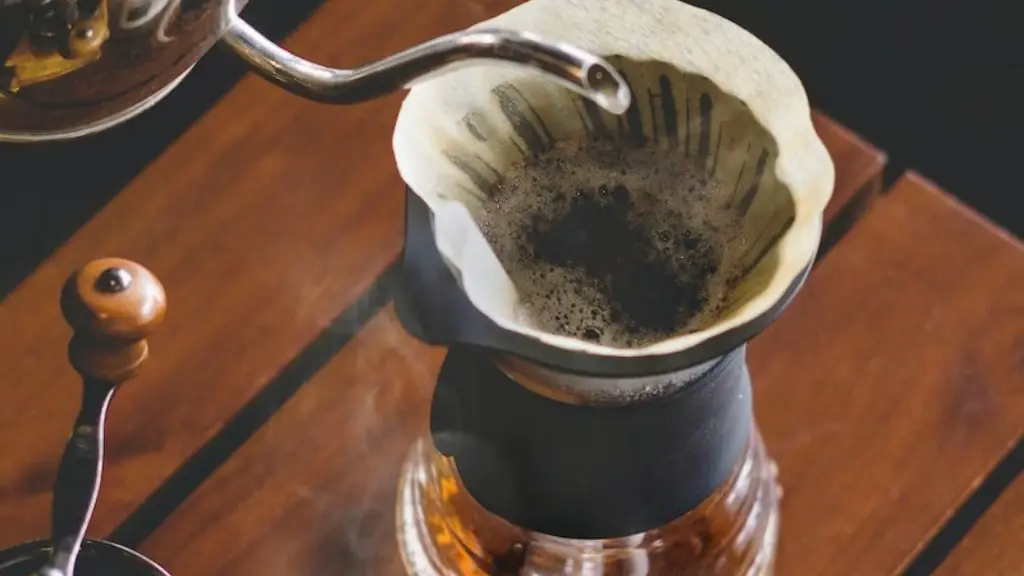The Science Behind Drinking Coffee On Your Period
Contrary to popular belief, drinking coffee on your period might not be as bad for you as it’s sometimes made out to be. Research has suggested that caffeine can temporarily reduce the pain associated with menstrual cramps, provided that it is consumed in moderation. Furthermore, there are many other health benefits to drinking coffee – it is rich in stimulants and antioxidants, contains a host of vitamins, and can even protect against cancer. In spite of these possible health benefits, many people are still wary of drinking coffee during their period, due to the common notion that it can increase bloating, fatigue, and make menstrual cramps worse.
One of the biggest concerns surrounding drinking coffee during your period is the potential for bloating. It’s true that coffee can be a diuretic, which means that it encourages the body to expel unwanted fluids, which can make you feel bloated. However, this side effect can be reduced by drinking a lot of water alongside your cup of java.
In addition to potentially leading to a bloated stomach, many people worry that drinking coffee whilst on their period might make them feel more tired and sluggish. Again, this is misconception is not necessarily true, as the stimulants in coffee can actually help boost energy levels and concentration. However, too much coffee could certainly lead to feelings of exhaustion, as the effects of caffeine can wear off quickly and leave you feeling worse than before.
But perhaps the most common fear about drinking coffee during your period is that it can worsen menstrual cramps and pain. While it is possible that the caffeine in coffee could increase both physical and emotional distress, there is also evidence to suggest that it can help reduce cramps and pain, as long as it is only consumed in moderation.
One study examining the effects of coffee consumption during menstruation asked over eight hundred participants to report their menstrual symptoms and coffee consumption habits. The results indicated that coffee consumption was associated with a decrease in pain, regardless of the amount consumed. While further research is needed to fully understand the effects of caffeine on menstrual symptoms, this study suggests drinking coffee in moderation can help ease the discomfort of period cramps.
Furthermore, many people also view coffee as a tasty treat that can help provide comfort and solace when we’re feeling low. Due to the fact that caffeine is a stimulant, it can not only help us feel more alert and energized, it can also boost our serotonin levels and act as an effective mood enhancer. So, if you’re in desperate need of a pick-me-up, a well-timed cup of coffee might be just the thing to lift your spirits.
Caffeine Sensitivity
While there is some evidence to suggest that drinking coffee during your period can help reduce pain, it is important to be aware that caffeine can have varying effects on different people. It is therefore important to be aware of your own individual caffeine sensitivity before drinking coffee during your period, as it is possible that it could lead to an adverse reaction.
Caffeine sensitivity is usually determined by a combination of genetic and environmental factors, such as age, gender, body size, and lifestyle. In general, those with higher tolerance levels are more likely to experience the beneficial effects of consuming caffeine, such as increased alertness and focus, whereas those with lower tolerance levels might experience feelings of anxiety, restlessness, and jitteriness.
If you’re unsure of your individual caffeine sensitivity, it is always recommended to start with small amounts and gradually increase the amount as you become more familiar with the effects. For maximum safety, it is best to avoid drinking more than five cups of coffee in a single day, as this could lead to an excessive intake of caffeine, which could have adverse effects.
Effects On Blood Sugar
Although coffee can have various health benefits, it is important to be aware of the potential risks associated with drinking it on your period. One of the major concerns is the effect it can have on blood sugar levels. Studies have shown that when consumed on an empty stomach, the caffeine in coffee can lead to a rapid spike in blood sugar and insulin. For those with diabetes or pre-diabetes, drinking coffee on an empty stomach can actually make symptoms worse and could even lead to hypoglycemia.
In order to avoid any risks associated with coffee consumption, it is best to always drink it with food. This will ensure that you don’t experience a rapid increase in blood sugar levels, without compromising on the health benefits and taste of your favorite cup of joe.
Coffee Alternatives
For those looking for alternative ways to boost their energy on their period, there are plenty of options. Firstly, switching to decaffeinated coffee can help reduce the stimulating effects of the caffeine, whilst still providing the same antioxidant benefits. Alternatively, you could opt for a herbal tea, such as chamomile, which has been known to help ease menstrual symptoms.
You could also try foods such as nuts and seeds, which are high in B vitamins, as well as whole grains, which are packed with fiber and other essential minerals. Of course, you could also opt for healthier snacks, such as fruit, carrots and hummus. All of these tasty options are great for fueling your body and helping you stay energized on your period.
Healthy Hydration
It is also important to remember that hydration is the key to staying healthy and energized on your period. Caffeine can act as a diuretic, so it is best to combine it with plenty of water and other hydrating drinks, such as coconut water and herbal teas. This will help prevent dehydration and also flush out any toxins in your body that might be causing bloating or PMS symptoms.
That said, it is important to remember that everyone is different and should find what works best for their body. If drinking coffee on your period works to reduce the pain of menstrual cramps, then by all means keep drinking it. However, it is important to be aware of the potential risks associated with caffeine consumption, particularly in regards to sensitivity, blood sugar levels, and dehydration.
Overcoming Caffeine Dependence
It is important to be aware of your own individual caffeine habits, as well as the potential risks associated with drinking it on your period. Too much caffeine can lead to a dependency mentality, which can be difficult to break. In order to overcome this, it is best to gradually reduce your daily intake, rather than quitting cold turkey.
Start by replacing one cup of coffee with a decaffeinated alternative, such as an herbal tea or hot water with lemon. Once you’ve achieved a reduced caffeine intake, try adding some other energizing foods, such as oatmeal or nuts and seeds, to your diet. This will provide your body with the energy it needs to stay energized and alert throughout the day.
Finally, make sure that you get plenty of rest and relaxation during your period. Try going to bed earlier and avoiding excessive screen time, as this can make it harder to fall asleep. Exercise can also help to boost energy levels, so make sure you take the time to get up and move every day.
Thoughts On Coffee Consumption On Your Period
Though research has suggested that drinking coffee on your period can help reduce cramps and pain, it is important to keep in mind that everyone reacts differently to caffeine. It is therefore important to be mindful of your own individual caffeine sensitivity before you start drinking coffee on your period.
At the same time, it is important to be aware of the potential risks associated with drinking coffee, such as a rapid spike in blood sugar and insulin levels. Therefore, it is best to drink coffee with food or combine it with other energizing foods and drinks, as well as ensuring plenty of hydration throughout the day.
Finally, it is important to remember that caffeine can act as a stimulant, so it is best to be aware of your own individual habits and make sure that you don’t overdo it. By being mindful of these factors and drinking coffee in moderation, it is possible to reap the potential benefits and enjoy the occasional cup of coffee during your period.





